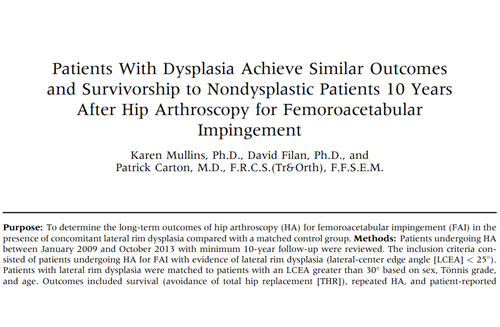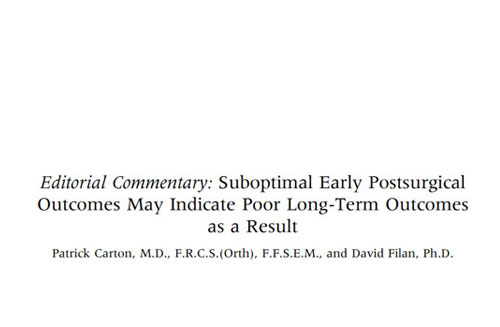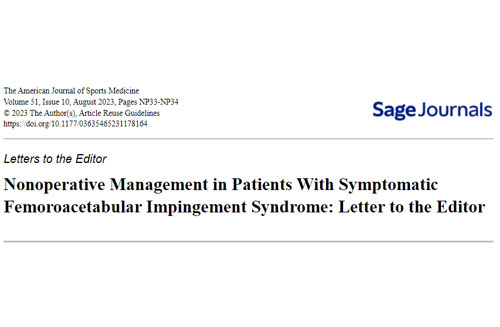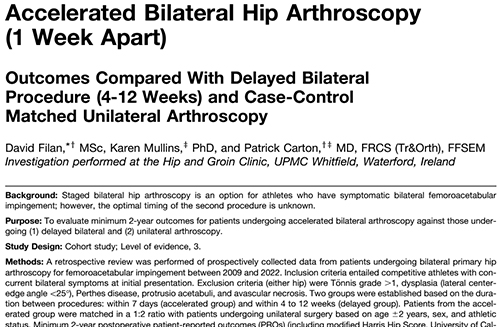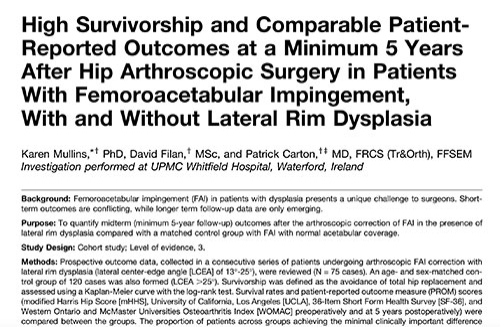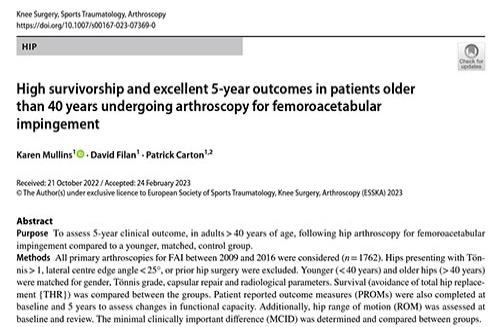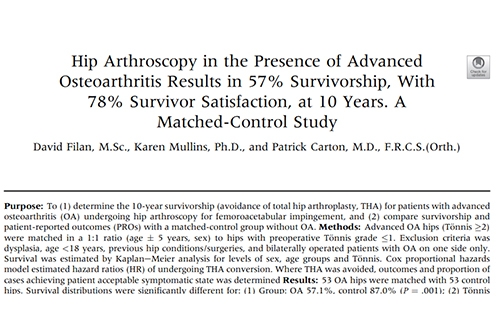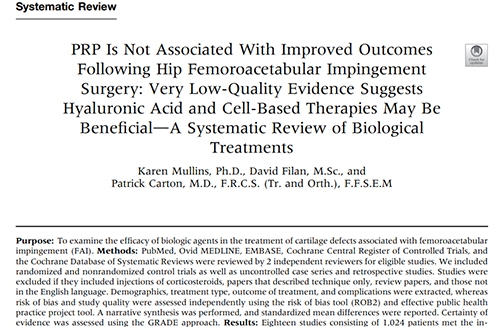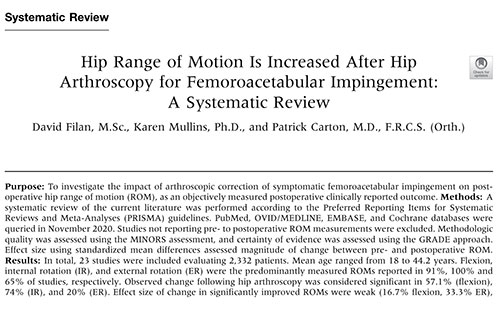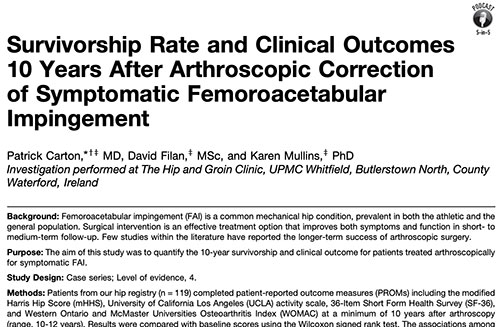Recent Publications
Patients With Dysplasia Achieve Similar Outcomes and Survivorship to Nondysplastic Patients 10 Years After Hip Arthroscopy for Femoroacetabular Impingement
HA for symptomatic FAI is a successful treatment in cases in which dysplasia is present. Low complication rates, comparable outcomes to cases without lateral rim dysplasia, and a high survivorship rate of 91% at minimum 10-year follow-up are observed. Increasing Tönnis angle preoperatively may increase the risk of THR conversion.Read More
Editorial Commentary: Suboptimal Early Postsurgical Outcomes May Indicate Poor Long-Term Outcomes as a Result
Recent research has shown that hip arthroscopy outcomes at 6 months correlate with long-term outcomes. In theory, a score below a certain “threshold” at 6 months might predict poor long-term outcomes and thus allow intervention to improve the future prognosis of recovery and success. Read More
Nonoperative Management in Patients With Symptomatic Femoroacetabular Impingement Syndrome - Letter to the Editor.
Nonoperative Management in Patients With Symptomatic Femoroacetabular Impingement Syndrome - Letter to the Editor.Read More
Accelerated Bilateral Hip Arthroscopy (1 Week Apart): Outcomes Compared With Delayed Bilateral Procedure (4-12 Weeks) and Case-Control Matched Unilateral Arthroscopy
Staged bilateral hip arthroscopy is an option for athletes who have symptomatic bilateral femoroacetabular impingement; however, the optimal timing of the second procedure is unknown.Read More
High Survivorship and Comparable Patient-Reported Outcomes at a Minimum 5 Years After Hip Arthroscopic Surgery in Patients With Femoroacetabular Impingement, With and Without Lateral Rim Dysplasia
As the understanding of FAI and the various contraindications for hip preservation advance, uncertainty remains as to the optimal treatment approact for patients with FAI and concomitant dysplasia. The purpose therefore of this study was to report the midterm (min 5 years) outcomes for hip arthroscopy for FAI in the presence ... Read More
High survivorship and excellent 5-year outcomes in patients older than 40 years undergoing arthroscopy for femoroacetabular impingement
The purpose of this study was to report 5-year outcomes in older adults (>40 years) undergoing arthroscopic treatment of femoroacetabular impingement and to compare their outcomes to a younger control group.Read More
Hip Arthroscopy in the Presence of Advanced Osteoarthritis Results in 57% Survivorship, With 78% Survivor Satisfaction at 10 Years. A Matched - Control Study
The purpose of this study was two-fold: 1) to determine the long term (10 years) survivorship (i.e., avoidance of a total hip replacement) for patients with advanced osteoarthritis undergoing hip arthroscopy for femoroacetabular impingement Read More
PRP Is Not Associated With Improved Outcomes Following Hip Femoroacetabular Impingement Surgery: Very Low-Quality Evidence Suggests Hyaluronic Acid and Cell-Based Therapies May Be Beneficial - A Systematic Review of Biological Treatments
The use of and interest in biologic treatments has grown in popularity in sports medicine, however their efficacy remains ambiguous. The purpose of this systematic review was to examine the efficacy of biologic agents in the treatment of cartilage defects associated with femoroacetabular impingement (FAI). Read More
Hip Range of Motion Is Increased After Hip Arthroscopy for Femoroacetabular Impingement: A Systematic Review
It is generally accepted that decreased motion in patients with symptomatic FAI occurs primarily because of a mechanical block to movement from abnormal bony morphology of the proximal femur and/or acetabulum. Read More
Survivorship Rate and Clinical Outcomes 10 Years After Arthroscopic Correction of Symptomatic Femoroacetabular Impingement
In this study, 119 cases undergoing hip arthroscopy for femoroacetabular impingement (FAI) were followed-up 10 years post-surgery (range 10-12 years). Long-term patient-reported outcomes, satisfaction and incidence of subsequent surgeries are reported. Read More

